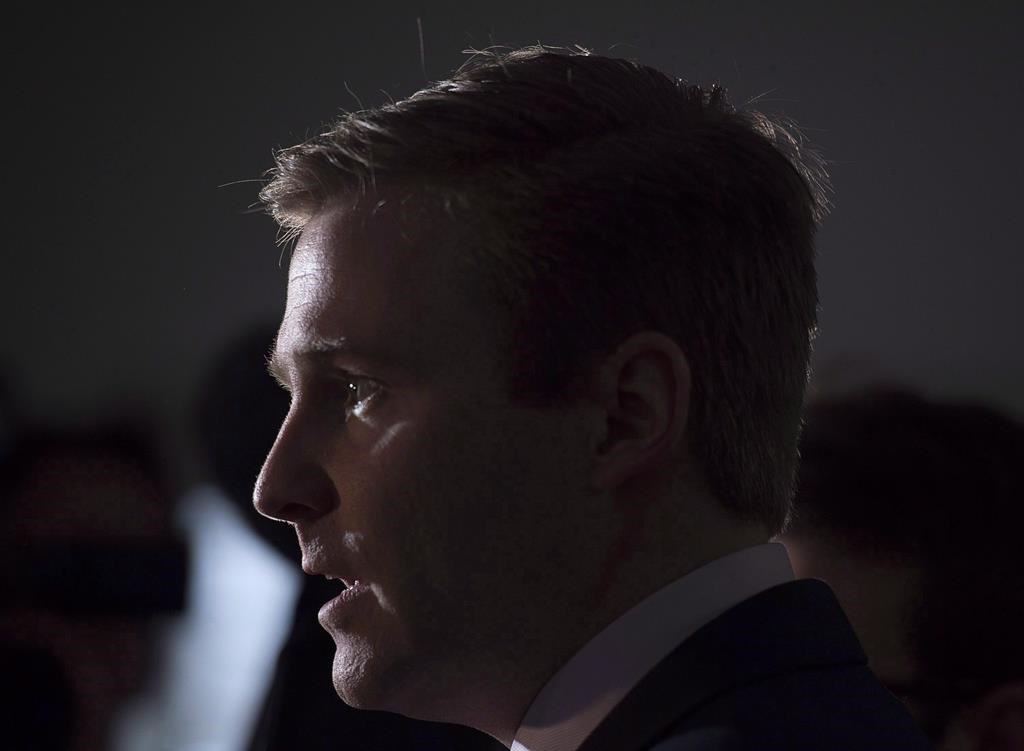Support strong Canadian climate journalism for 2025
Canada's First Ministers should stand united in the face of a mounting trade war with the United States, New Brunswick's premier said ahead of this week's meeting of provincial premiers.
Despite rising tensions over carbon pricing, equalization and trade, Brian Gallant believes the primary focus should be to find ways to work together to grow the Canadian economy.
"With some of the uncertainty that we see with our largest trading partner the U.S., it's going to be important that we as premiers do everything we can to advance the trade agenda, which is so important to the economic prosperity of our country," Gallant said in an interview Tuesday.
The Council of the Federation — the alliance of Canadian premiers that sets the agenda for the provinces in Ottawa — will meet Thursday and Friday in the seaside town of St. Andrews.
The provincial leaders are expected to tackle a range of topics, including the U.S. trade dispute, interprovincial alcohol sales and the skirmish between Alberta and British Columbia over the Trans Mountain pipeline project.
Gallant said a multifaceted discussion is needed on how to bolster Canada's trade case with the U.S., including finding ways to reach out to decision makers south of the border and to Americans as a whole.
Gallant said the discussion should also explore ways provinces can help diversify export markets, while also improving interprovincial trade.
"We as premiers should discuss in my opinion how we can expedite the implementation of the Canadian free trade agreement. This is a way to help in an uncertain time with our largest trading partner and it's also a way to drive innovation and increase choices for consumers."
Gallant said he believes progress on internal trade can be made, given the external trade pressures posed by U.S. tariffs on steel and aluminium.
"I believe the appetite will be there," he said. "Now the proof is always in the pudding . . . but I sense from my colleagues that there's a willingness to take concrete action."
During a stop in Nova Scotia on Tuesday, Prime Minister Justin Trudeau said both he and Canadians find it frustrating to see continued barriers to internal trade at a time when the federal government is trying to expand Canada's international trade through deals with Europe and Asia-Pacific countries.
"We as a government will continue to put pressure on premiers to move forward in real and tangible ways on internal trade," said Trudeau. "There is a tremendous amount of good will by many premiers to do that."
In a letter to provincial counterparts last week, Manitoba Premier Brian Pallister said the provinces should remove limits on the interprovincial transportation of alcohol for personal use.
He said the idea has broad public support and would show progress in the effort to reduce interprovincial barriers on other items.
Nova Scotia Premier Stephen McNeil agreed, saying the provinces need to do a better job of reducing trade barriers.
"We'll be talking about free trade, not only with the United States but internally," he told reporters last week, noting the premiers will discuss how to continue "modernizing trading arrangements" within Canada.
McNeil said he also expects a discussion on equalization, the transfer payments from Ottawa to the provinces.
He cautioned that the program cannot be examined in isolation, and that any request to review the equalization formula should be "holistic" and include other federal funding programs.
Nova Scotia suffered when the country's health-care funding model became divided among the provinces on a purely per capita basis. McNeil said the formula punished provinces with older populations like Nova Scotia, while benefiting younger provinces like Alberta.
Meanwhile, although it's not on the formal agenda, provincial leaders are expected to discuss the federal deadline for a carbon-pricing system — a policy intended to reduce the country's greenhouse gas emissions.
The Ontario government has said it would end the province's cap-and-trade program, joining a faction of provinces opposed to a carbon-pricing regime.
The upcoming meeting will mark the first time newly elected Ontario Premier Doug Ford will get to advance his case against the plan on the national stage.
"The premier is keen to discuss how every Canadian province and territory can stand together to create and protect jobs during the current trade dispute with the U.S.," said a statement from Ford's office.
"The premier is also looking forward to identifying ways provinces and territories can work together to oppose the federal government's plan to impose a punishing carbon tax on Canadian families, and to having discussions with provincial counterparts to ensure the federal government pays their share when it comes to illegal border crossers."
Daniel Schwanen, vice-president of research at the C.D. Howe Institute, said he expects climate change and pharmacare to be hot topics, but believes it will be international trade that dominates.
"One that they have to come out unified on — it's no question that it's the international trade issues," said Schwanen. "I also suspect that they won't come out unified on much else, but that doesn't mean that these meetings can't be an opportunity for a greater understanding."
The premiers are also scheduled to meet with national Indigenous leaders on Wednesday in Bouctouche, N.B.





Comments